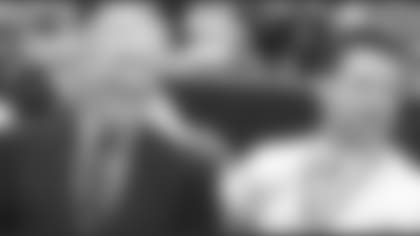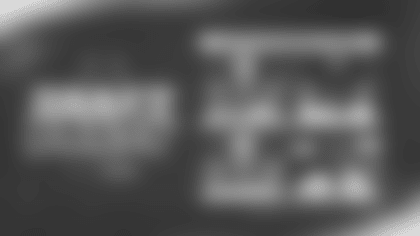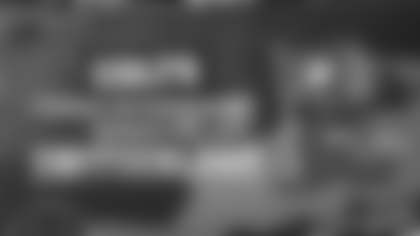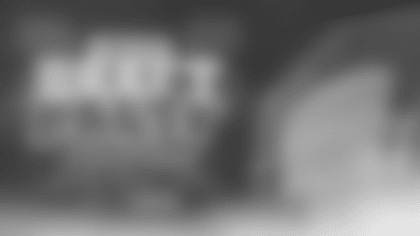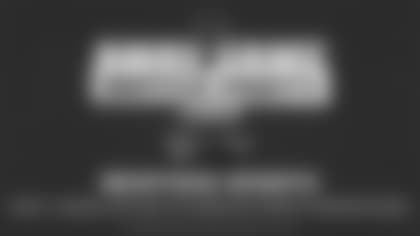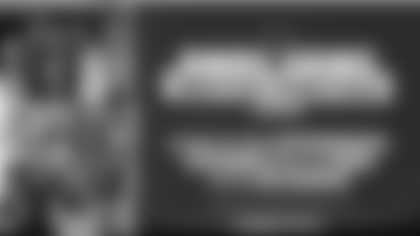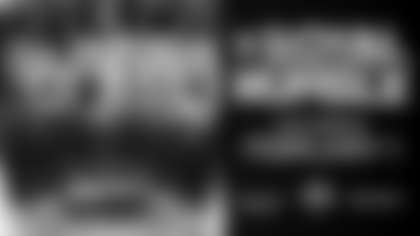Bill Polian, in his 13th season as Colts president, has a
resume unique in the NFL. The only man to win NFL Executive of the
Year six times, Polian in the 1980s built the Buffalo Bills into a
four-time Super Bowl participant. In the mid-1990s, he built the
expansion Carolina Panthers into a team that made the NFC
Championship Game in its second season, 1996. Since joining
Indianapolis in 1998, he built the Colts from a 3-13 team in 1997
and 1998 into one that has made the playoffs 10 of the last 11
seasons, including AFC Championship Game appearances after the
2003, 2006 and 2009 seasons, AFC South titles in 2003, 2004, 2005,
2006, 2007 and 2009, Super Bowl appearances following the 2006 and
2009 seasons and a Super Bowl championship following the 2006
season. Each week during the season, in The Polian Corner, Polian
and Colts.com will discuss issues pertinent to the Colts and the
rest of the NFL.
Q: A 34-24 loss in the 2010 regular-season opener to the Houston Texans Sunday. After watching the tape from the game, what's your assessment?
A: There's no putting a good face on it, really. I think we made enough mistakes in all three phases to put the game out of reach. That said, they're all correctable. It isn't a question of being outmanned. In some cases, we were outplayed, but I think all of the things we did were correctable. But as one of our coaches said today, 'We shot ourselves in both feet and both knees, and the gun's in our hand and smoking.' That you can correct. There's no sense dwelling on what went in the past other than to explain it: get on with the job of getting ready for the (New York) Giants. We made many mistakes that ended up costing us the game against a good, well-prepared, fired-up team, which we knew is what we would face. We made a lot of mistakes, dropped balls, penalties which called back a touchdown run. (Texans safety Bernard) Pollard made a great play causing the fumble, and it was a fumble. I would give them credit for that one as much as saying it was our mistake. We didn't protect the passer very well and some of that is due to the injury situation, but the bottom line is, injured or not, you have to go out and get the job done. We didn't get it done. Defensively, we were out of sync the entire second half and that, in a large sense, was recognition and reaction. They punched us out at the end. The good thing was we kept fighting and the touchdown that was called back on the kickoff return – we came back with a long touchdown. The game never got out of reach because we fought hard, but other than that, it sure wasn't an artistic success.
Q: The Texans ran very effectively in the second half. Did they do anything differently than they had in the first half?
A: Yes and no. They did a little bit in terms of the direction of the fullback and a little bit in terms of the direction of the wingback. It was enough to slow us down, and it was enough to cause us to react less quickly than we should. More power to them. It was good coaching, and they hit the hole and went with it. In the last drive, they wore us out. We didn't do as good a job as we should have on the line of scrimmage on the last drive. But they did do a great job of slowing the linebackers down.
Q: Any bright spots Sunday?
A: As I said earlier, when you fight as hard as we did until the end, that says a lot, particularly on the offensive side of the ball. I thought (running back) Devin (Moore) did a great job returning kickoffs – actually, the one he bobbled was a great return, because he came all the way back to the 20 with it. I thought in the passing game we did more than enough to win the ball game. Anytime you score 24 points in the National Football League you are probably going to win about 70 percent of the time. (Quarterback) Peyton (Manning) did a great job. He had a great day statistically, but he did a great job under more duress than you'd like him to have. We knew that was going to happen. To his credit, he hung in there and did a heck of a job. I thought defensively in the first half when our special teams got us in trouble, the defense hung in and held them off with three points twice. That was a good outing for them at that stage in the game. What we have to do is clean up the running game situation. It's not unlike what happened in Jacksonville four or five years ago. It's correctable and you need to get it corrected, but there were some bright spots there. It is never as bad as you look when you look on television when you watch the tape. In our case, as I said, it's a question of cleaning up your own mistakes – things we did where we're not as sharp as we should be.
Q: Why do the Colts not have a power runner in the vein of Jerome Bettis, etc?
A: I don't disagree with you. We've tried on a couple of occasions to isolate on one and haven't been able to get one in the draft that we like. The offense is not necessarily constructed to run that way, but somebody like The Bus probably can make his own hole in a lot of cases. What happens is you end up in a discussion about whether or not you can get that guy dressed on Sunday. The counterargument is, 'Listen, he only plays four or five plays a game.' It's the same argument for a fullback. He only plays four or five plays a game. Over the course of a season, for 80 plays, do we want to use up a 45-man roster spot? In the end, absent somebody that we really think would be a difference-maker – we're not talking about a college power runner; we're talking about a true professional power runner – we've come down on the side of, 'Well, we don't want to use the roster spot.' But the point is well-taken, and it's one we discuss every off-season.
Q: Is there any thought to using safety Bob Sanders on running downs only?
A: No, I don't think so. If he's healthy, you want to use him on every down, because he's a difference-maker. What he does in the passing game is intimidate receivers. You saw that in Green Bay, where he got the penalty – I thought the penalty was unjustified, by the way – but that's what he can do to receivers, particularly with balls that aren't 100 percent on target. He can cause guys to cough balls up, too. You want him on the field as much as you can have him on the field. Whether he'll be healthy enough is another question.
Q: Can you assess the offensive line situation?
A: In (right tackle) Charlie Johnson's case, and in (center) Jeff Saturday's case, they hadn't played in a month, basically. In both cases, they were less than 100 percent. I think that will change as time goes by. They'll get healed up, and they'll get more practice, and their timing will be better. You couldn't find a worse match-up than to get (Texans defensive end) Mario Williams coming off a month of inactivity because of a bad foot. It's a very tough match up. We tried to help as best we could with chips, but there are going to be times when you simply can't use the back to chip because they don't allow you to with a blitz, and they're able to get a one-on-one. To Charlie's credit, he won most of them. As Howard Mudd, our former great offensive line coach, was wont to say, 'You can be perfect for 59 plays and if you give up a sack on the 60th play, you had a bad day.' Charlie gave up a sack and a pressure, I believe, but that was tough duty and frankly, that's what kept me awake at night going in to the ballgame. I thought (guard) Mike Pollak had a good game at right guard. Ryan Diem had a little bit of an in-and-out game (at right tackle) – he, too, gave up a pressure and a sack, I believe. (Guard) Jamey Richard and Jeff were OK, but Jamey Richard was playing left guard for the first time. He had been playing center the whole time during the preseason and doing a great job there. You had the problem of cohesion because of the injuries and the match-up being the worst possible match-up you probably could get when you're in that situation. We knew going in it was going to be a little bit difficult there, and it turned out to be what we hoped it wouldn't be. I think it will get better. I think the injured players will heal up. Our young players will come on. It will get better as the season goes on. It was a rough day Sunday – understandable to some degree, and I think it will get better.
Q: Anything you could have done differently against the run Sunday – and anything that can be done going forward to improve?
A: The issue is what we call gap integrity. Let me try to explain that. There are essentially six gaps on the line of scrimmage – between the center and the guard, between the guard and the tackle and between the tackle and the tight end, then of course, outside the tight end. That makes eight, but they're basically defined as the 'A' gap, the 'B' gap and the 'C' gap. When you hear that terminology, that's what people are talking about. In order to stop the run in modern football, particularly against a zone-blocking team – which is what the Texans are; it's really an offshoot of the old Denver Broncos/Mike Shanahan offense – you have to have gap integrity. You have to fill every gap with a defensive player. The player must be able to hold that gap and either cause the ball to move outside or inside. You can't allow the runner to get a free run into the secondary. We did not have good gap integrity Sunday. Part of that was because they slowed our linebackers down with some pretty good counteraction. Part of that was because we didn't recognize and react fast enough. Some of that was just good blocking on their part, particularly on the backside of runs. That was essentially the problem. The question you're really asking is, 'Is it correctable?' The answer is yes, because we do have some physical people up front. It's not as though we're playing with people who can't take on blockers, so the bottom line is, 'Can we correct the gap integrity that wasn't there Sunday?' Yes. It takes hard work to do it. You have to really be tuned in. You have to understand your responsibilities. In many cases, you may have to use a safety if they're going to put seven and eight people close to the line of scrimmage to block. The bottom line, the answer is it's correctable, and I'm confident we'll do it.
Q: Was guard Kyle DeVan hurt?
A: No. We decided Mike Pollak had won the job.
Q: Since the offensive line is a pass-blocking line, wouldn't it be easier to have a fullback to help with the running game?
A: That question is the companion to the question asked earlier about a power running back – someone like The Bus, if you could replicate that person. Finding one is not easy. Finding a fullback is easier. But again, we get in that discussion every year and we say to ourselves, 'What's the alternative?' The alternative is if you have a fullback and you have a power running back – and you probably should have both – now, you're taking up two roster sports for guys who do nothing else. You would hope they would play special teams, but they're usually not great contributors on special teams. The bottom line is for 80 plays a season, do you want to take up those spots and take a tight end off the roster, take a wide receiver off the roster? We've always gone the other way. Additionally, there's a difference in running games between what Houston does, for example, which is pure zone blocking and what Baltimore and the New York Jets do, which is power blocking. We are never going to be a power-blocking team. That's not what we do. We're much more of the zone-blocking team. You're quite correct that Houston uses a fullback and they do a good job of it. We've elected not to go that way, but I can't argue with people who say, 'This may be an alternative.' The bottom line: when you score 24 points, even though we played less than our best game offensively, you probably should win. We don't have any problems scoring points. The problem we had Sunday was preventing the scoring of points. That's out of character, because we've been a good defense, really, for about the last three years.
Q: There seemed to be some no-calls by the officials Sunday. Any comment?
A: I'm not allowed to comment on calls, good or bad. I will say this: if you were sending in an officiating report, you would have been right to highlight those plays. We'll see what the officiating report says. Those were plays that you would certainly think you'd want an explanation on.
Q: What was your assessment of the call that took a touchdown from Detroit Lions wide receiver Calvin Johnson Sunday?
A: I don't want to upstage (former NFL Vice President of Officiating) Mike Pereira, who is now doing it for a living, but you must complete the play. Completing the play means if you go to the ground in the end zone you must come up with possession of the ball. It's a controversial rule. It has been that way for a while. I suspect with the notoriety that that play got, the Competition Committee might take a look at it in the off-season, but the call was correctly made, given the interpretation that presently exists. You have to complete the play. It's the same rule in the field and in the end zone. Where people get confused is that a ball-carrier only has to break the plane whereas a receiver must complete the play. There is some intellectual inconsistency there, and the officiating department readily admits that, but that's the rule. They correctly applied the rule.
Q: What are your thoughts on scripting plays early in games as opposed to calling audibles?
A: First and foremost, I believe the Broncos and Houston script the first 15, if I'm not mistaken. The reason is their offense is designed to try to determine what you're going to do, and then they come back to it as they came back to the running game in the second half. They show you a lot of things, try to get you to show what you're going to do, then they go from there. Our offense on the other hand is designed to take advantage of whatever the defense may do. While we have a game plan and it's very solid, Peyton can go up and based upon looks he sees, he can get us into the correct play. You have to execute the play, and we had far too many drops early in the game that may well have changed the game. We didn't catch the ball. The bottom line is we think our system works well. Would it work as well with an inexperienced quarterback? Probably not. The Houston system probably works better for a quarterback who doesn't have a lot of experience getting the right looks and audibles and all of that kind of thing. In our case, it works just fine. We're happy with it. Both work. Both do well. On Sunday, it wasn't a matter of play-calling on defense that got us. It was a matter of execution. They out-executed us there. More power to them. I don't think it was a function of the script. They only threw for 108 yards, which is kind of unheard of. To win a game in the National Football League and only throw for 108 yards is really out of the ordinary. But it was an out-of-the-ordinary game because we never got the run stopped.
Q: When discussing the Colts, you typically say the Colts have the right personnel. Have you ever felt differently?
A: Yes. When we were a not-so-good team many years ago I frequently said we needed better personnel in certain situations. We got waxed by the New York Jets in the old Meadowlands in my first year as general manager. In those days, we did a post-game show. We had maybe six or so guys on defense who didn't give a good effort that day. I famously said to (Voice of the Colts) Bob (Lamey) after the game, 'There's good news and bad news. The bad news is we had about a half a dozen guys who didn't fight hard today. The good news is they won't be here tomorrow.' We haven't won 12 games for the last seven years because we have bad personnel, so I've had no reason to criticize, but if we didn't have good personnel in certain situations, I would say so.
Q: The Colts this week play host to the New York Giants. Talk about that matchup, if you will . . .
A: This is the Battle of the Brothers, the Manning Bowl – whatever name all the hype attaches to it. They do have a very good running attack. They have an excellent passing attack, obviously. (Wide receiver) Hakeem Nicks has turned into a go-to guy for (quarterback) Eli (Manning). They have a defense that relies heavily on blitzes and that does a terrific job in terms of rushing the passer. We're facing a team that ostensibly is a contender for division honors and playoff honors – no question about that. We've got a lot of work to do between now and next Sunday night.
Q: Talk about the development of Eli Manning . . .
A: I think he's grown greatly over the years. He has adapted to the National Football League. He has adapted to the way the Giants want to play. He has adapted to the weather conditions there, which are different than they are here. You have wind and cold, particularly wind, from about Thanksgiving on in the Meadowlands. That really makes it difficult for a quarterback. He has grown every year. I think he has turned into one of the real top quarterbacks in the game. He's worked at it and you feel good for him because of that. By the way, I also feel terrible for (former Colts backup quarterback) Jim Sorgi, who got hurt against the Jets in the preseason and is now on injured reserve. He's a great guy. He was a great contributor to our good seasons here. I hope he can come back. I don't know if he has had surgery or not. I'm not up to date on that. I hope that he can come back. That's a bad break. We wish him the best.
Q: They're also a team with a big-time pass rush . . .
A: They are. Justin Tuck. Mathias Kiwanuka. They have great pass rushers and they're very creative in how they do it. (Defensive coordinator) Perry Fewell is a guy who has run (former Colts Head Coach) Tony (Dungy's) defense in places where he has been – most notably in Buffalo as the coordinator and then as the assistant head coach last year. They did a great job in Buffalo against us in the blizzard conditions, so he's very familiar with our offense and what they did to handle it. He's a darned good football coach. We'll have our hands full there, and they'll be very creative in how they attack us.
Q: For the Colts, what does the week hold?
A: We just get the focus on doing the right thing at the right time. When things don't work out, you simplify, you focus and you do what's absolutely necessary. You don't change things, If anything, you dial back a little bit in terms of the number of things you're doing. You focus on detail and execution, and that's what we'll do this week.



